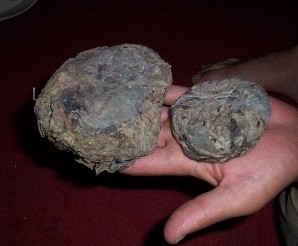The Afghan opium poppy crop will set a new record this year, US Ambassador to Afghanistan William Wood said Tuesday. The crop is set to exceed last year's record harvest despite more intensive efforts to combat the trade, he conceded.
According to Wood, preliminary data show that Afghan farmers harvested 457,000 acres of opium poppy this year. That's up from the 407,000 acres planted last year. Opium is planted in the fall and harvested in the spring and early summer.
Last year, Afghanistan accounted for 92% of the global opium supply. In 1997, the country accounted for only 52%, and it accounted for 70% in 2000, before the Taliban banned it in 2001. Thanks to high yields from Afghan opium, the global opium supply reached more than 6,600 metric tons last year, up a whopping 43% over 2005. There will be even more this year.

Volatile southern Helmand province, where US and NATO troops are engaged in a fierce guerrilla war with Taliban insurgents, alone produced nearly 212,000 acres of poppies, almost half the national total.
Afghan government-led opium eradication efforts managed to destroy about 49,000 acres of poppies, or a little more than one-tenth of the total crop, Wood said. He called the results of the eradication effort "disappointing."
"I think there is growing recognition both nationally and internationally of the importance of the illicit narcotics trade and the threat it poses," he said, adding that he is a firm believer in forced eradication. "We need to remove drug cultivation as an option, both because it threatens security and governance and stability in Afghanistan and because the product of drug cultivation is taking lives inside of Afghanistan and outside of Afghanistan through addiction and other criminal activity," he said. "Drugs, because of their value are like diamonds," Wood continued. "They are small, they are high value, they are easily transportable, and no one has ever found a successful way to stop people from picking diamonds up from the ground and trying to sell them. If the diamonds are on the ground, people will try to pick them up and try to sell them. So you've got to eradicate them from the ground," Wood said.
Good luck selling that to the Afghan farmers, opium traders, gunmen-for-hire, Taliban insurgents, and government officials making a living off the thriving black market in opium under the global drug prohibition regime.
This work by StoptheDrugWar.org is licensed under Creative Commons Attribution-ShareAlike 4.0 International
Add new comment